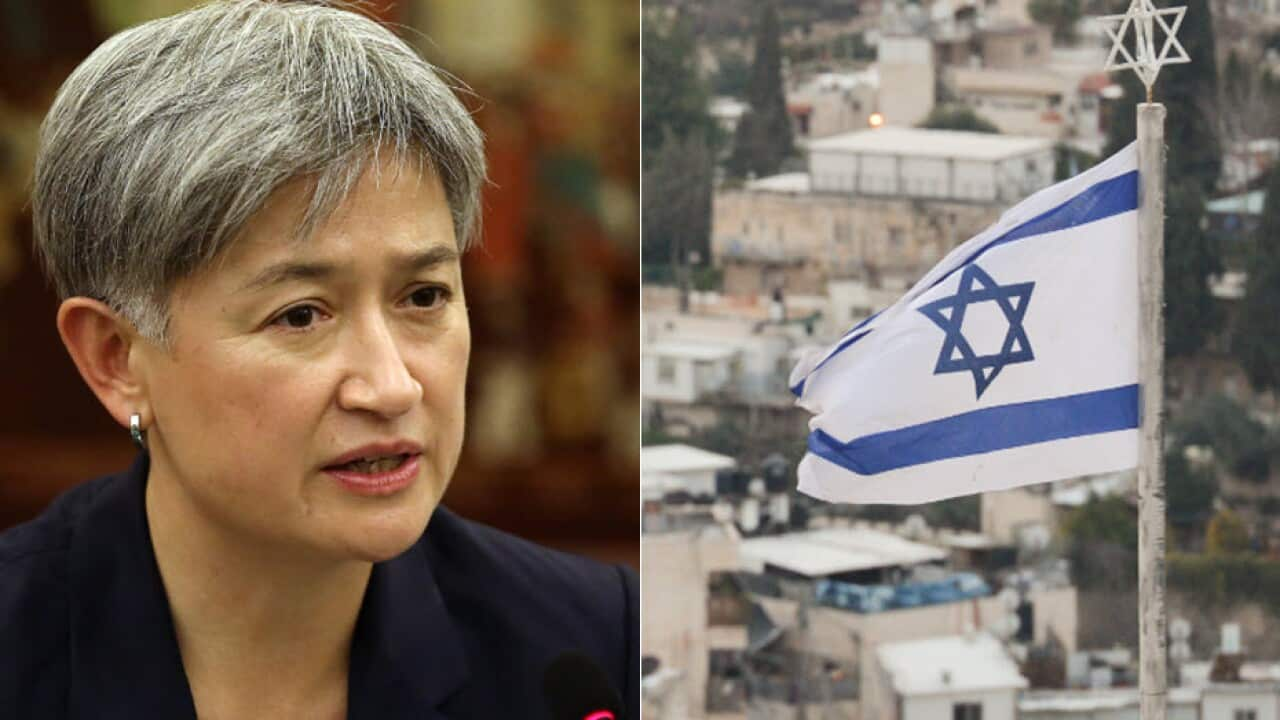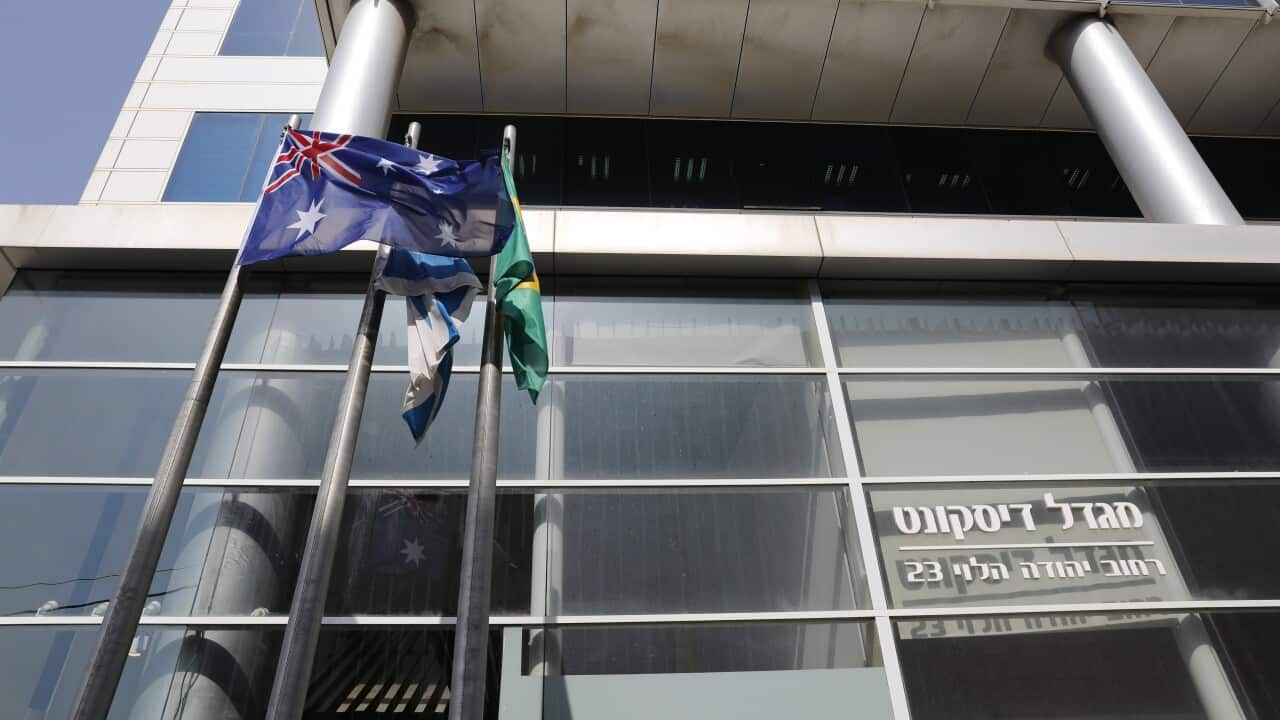Key Points
- Australia's reversal has been met with a strong reaction.
- Here's why Australia's decision in 2018 attracted great controversy in the first place.
While Israel has lashed out at Australia's decision to r, Palestinian territory officials have praised what has been described as a "step in the right direction" for peace in the Middle East.
Foreign Affairs Minister Penny Wong announced the move on Tuesday to reverse the decision made by former prime minister Scott Morrison in 2018.
The reversal has stirred strong reactions from different communities, with the status of Jerusalem a strong sticking point in the long-running Israeli-Palestinian conflict.
Here's why Australia's decision to recognise West Jerusalem as the capital of Israel attracted controversy in the first place, and what this means now for relations between the two countries.
Why did Australia recognise West Jerusalem as the capital?
Australia followed the lead of United States president Donald Trump in December 2018 under Liberal prime minister Scott Morrison. Mr Trump recognised all of Jerusalem as Israel's capital in December 2017 and relocated its embassy from Tel Aviv six months later.
Mr Morrison limited Australia's recognition to West Jerusalem and kept the embassy in Tel Aviv until a peace agreement was achieved.
Senator Wong accused the Coalition of following the US in a "cynical" play to win a crucial by-election in the electorate of Wentworth in Sydney's eastern suburbs at the time.
With Wentworth's sizeable Jewish population, Senator Wong said Mr Morrison was trying to "unsuccessfully" win over voters.
I think the reversal of the recognition of West Jerusalem as Israel's capital is tidying up a really bad mess made by the previous government.Professor Ben Saul
"What people saw was the prime minister of the day trying to play foreign policy in order to win votes in the seat," she said.
The by-election was subsequently won by independent Kerryn Phelps, who beat Liberal candidate Dave Sharma.
Challis chair of international law at the University of Sydney, Ben Saul, said Australia's decision in 2018 to recognise West Jerusalem as the capital of Israel was not only "out of step" with international law, but also "nonsensical".
"Of course, Israel itself is claiming all of Jerusalem - not just West Jerusalem - as its capital, so certainly this decision made no sense," Professor Saul said.
"I think the reversal of the recognition of West Jerusalem as Israel's capital is tidying up a really bad mess made by the previous government."
What's the controversy behind Jerusalem?
During the 1967 war, Israel occupied East Jerusalem, which was under Jordanian control at the time. In 1980, it claimed the entirety of Jerusalem to be the capital of Israel.
But the United Nations Security Council and General Assembly have both found that East Jerusalem is considered annexed illegally under international law.
"Israel has claimed to have annexed illegally under international law, East Jerusalem, which is no different from what since 2014," Professor Saul said.

The status of Jerusalem has long been considered a contentious issue in the Israeli-Palestinian conflict. Source: SBS News
It's a stance that Senator Wong has reverted back to, describing the status of Jerusalem as a "final status issue", which is in line with international law standards.
"It's completely sensible for the current government to walk that back and to restore the international status quo on Jerusalem," he said.
The head of the Palestinian delegation in Australia, Izzat Salah Abdulhadi, praised Senator Wong for her position.
"It's an important decision, it's a step in the right direction towards the effective implementation of the two-state solution," he told SBS News.
"A two-state solution is an empty concept if it's not linked to solving final status issues."
The vice president of the Australian Palestinian Advocacy Network Nasser Mashni described the Morrison government's move as a "flawed political stunt".
"We thank the current Australian government for differentiating itself from the dangerous political posturing of the previous government,” he said in a statement.
What does this mean for Israel-Australia relations?
The decision has drawn the ire of the Israeli foreign ministry, who have summoned Australia's envoy to express their disappointment over the reversal.
Israeli Prime Minister Yair Lapid accused Senator Wong of acting in a "hasty" manner, and affirmed his view that Jerusalem is the "eternal and united capital of Israel and nothing will ever change that".
The Zionist Federation of Australia described the reversal as "deeply disappointing" and sent a "very unfortunate message" to Israel.
Labor MP Josh Burns, who is Jewish, acknowledged his dissatisfaction with Mr Morrison "playing politics" with the issue yet is disappointed with his government over its announcement on Tuesday.
"I know people in my electorate and across Australia are hurt by this decision and to be honest, so am I," he wrote in a statement on Twitter.
He apologised for the "insensitive timing" of the announcement, noting Tuesday marked a holy day for the Jewish community, Simchat Torah.
"I am sorry - this clearly shouldn't have happened," he said.
Senator Wong emphasised Australia's relationship with Israel remains strong despite her decision.
"Australia will always be a steadfast friend of Israel ... We will not waver in our support of Israel and the Jewish community in Australia."
SBS News has contacted the Israeli embassy in Canberra for comment.
Has any other country recognised West Jerusalem as the capital of Israel?
Guatemala, Honduras and Kosovo are the only other countries in the world apart from the US to recognise the entirety of Jerusalem as Israel's capital, opening their embassies there too.
Paraguay initially opened its embassy in 2018, then reversed its decision months later.
In 2017, Moscow indicated its support for West Jerusalem as Israel's capital and East Jerusalem as the capital of a future Palestinian state if a peace agreement was reached.
In 2018, Brazil President Jair Bolsanaro made the announcement his embassy would also make the move to West Jerusalem but later appeared to pull back from his decision.
Instead, Brazil opened a trade mission based in West Jerusalem in 2019 and has kept its embassy in Tel Aviv.



